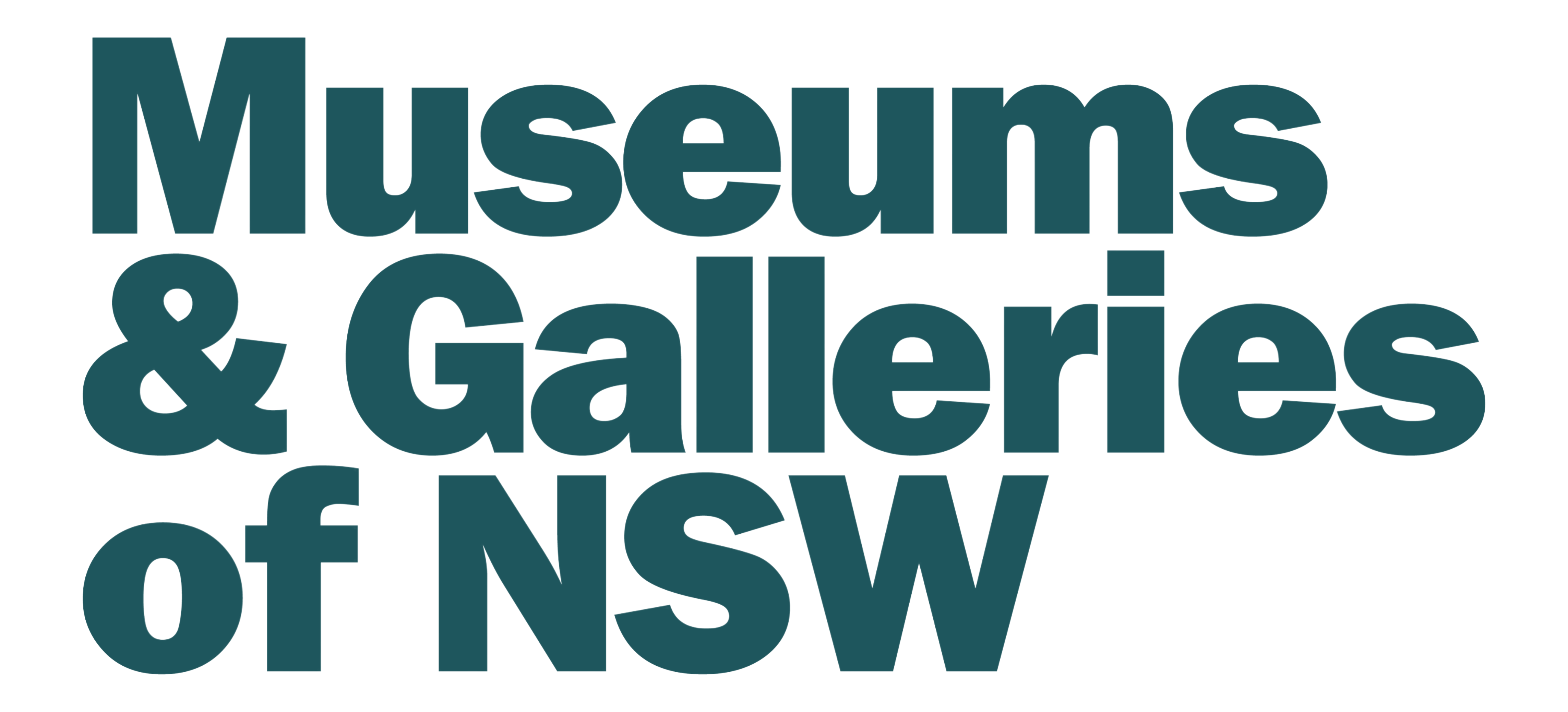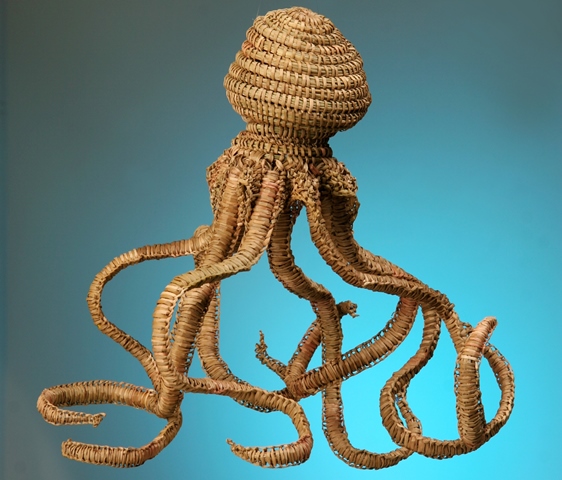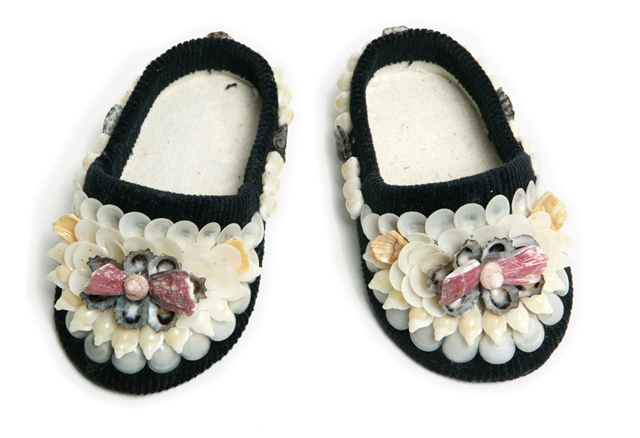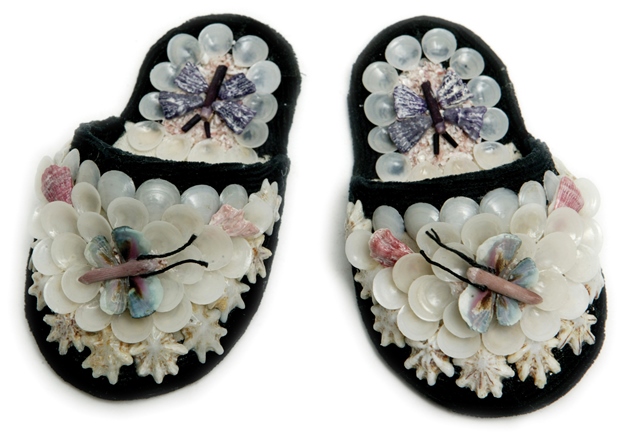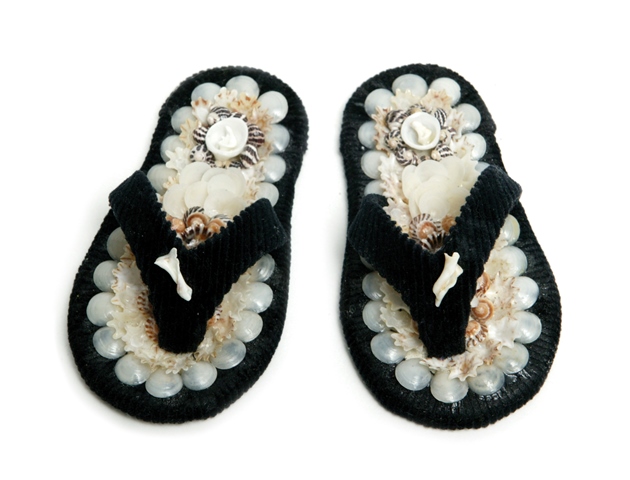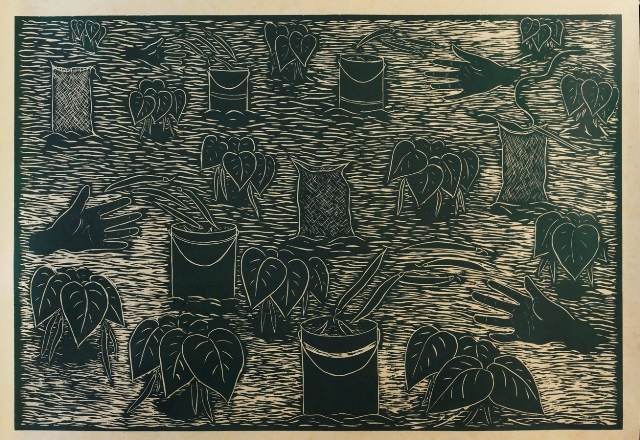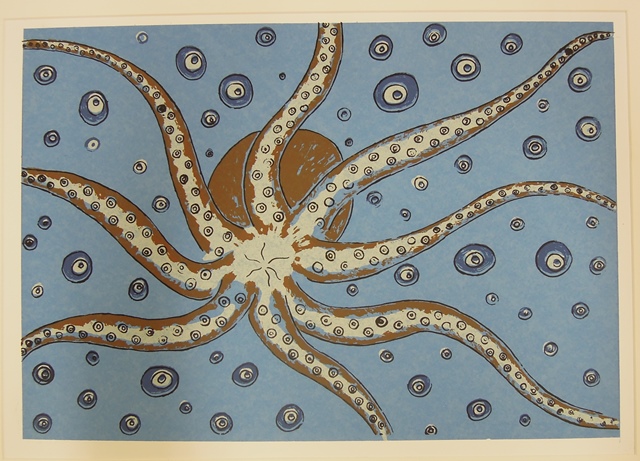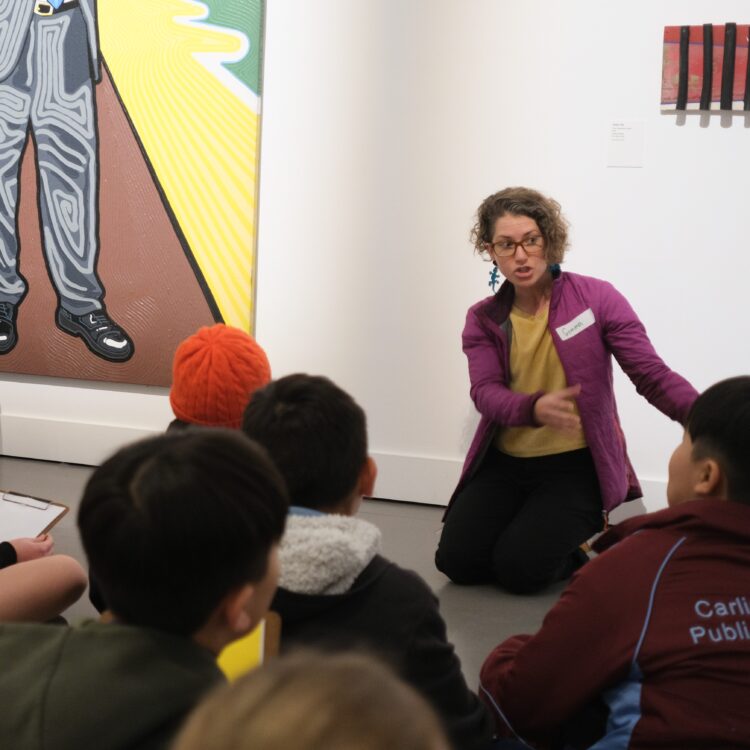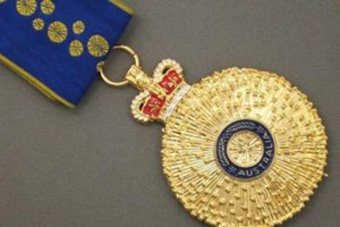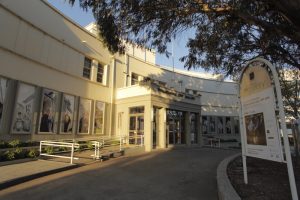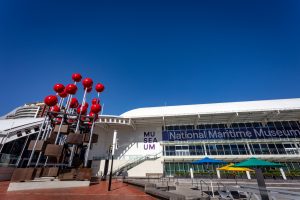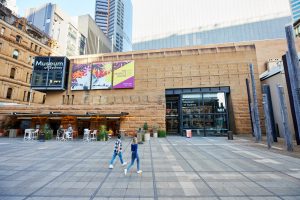Born in Berry, and sharing family connections with both the Dharwal and Yuin communities of the south coast of NSW, Phyllis Stewart’s family earned a living from vegetable picking and seasonal work, moving up and down the coastline from “Sydney to the borders”.
Stewart has an unbroken connection to country through her mother’s Armidale ancestry and her “father’s father’s people” of the Wallaga Lake region of the far south coast of NSW. There are close links with the Aboriginal community in La Perouse – the only Sydney suburb where Aboriginal people have maintained their territory from settlement until today and one which is famous for its traditional shell work.
Stewart’s talent as master weaver and maker is testimony to a rich and creative childhood spent helping adults harvest, weave and value-add from nature, observing and studying animal and plant life – a response to her Home country playing out directly in her art.
Her grass Octopus (2002), has been brought ashore, landed – her uncle’s powerful warning of the blue-ringed octopus’s poison informing detailed knowledge of anatomy and form – converted into woven form as art object.
Thongs, Slippers and Shoes explores the idea behind the ubiquitous, the everyday, the common and taken-for-granted.
Stewart uses the reflective surfaces of shells to decorate and reimagine everyday items into decorative objects. Three works in collection at Wollongong City Gallery, Thongs, Slippers and Shoes explores the idea behind the ubiquitous, the everyday, the common and taken-for-granted. Stewart renders these into objects purposed for considered examination and visual consumption. In this way she expands and redefines on an activity common to the La Perouse community from the 1950s and 60s of gluing shells onto cardboard cut-outs for sale to white tourists.
Stewart’s interest in the everyday and the utility of things is demonstrated in the group of Miniature baskets in the University of Wollongong’s collection (2009) – she has miniaturised them, urging us to squint and peer and closely examine them. This presentation removes them from being seen simply as ubiquitous tribal object or souvenir and offers them up into the realm of sculpture – constructed by elf-like fingers into an object of value; fragile and precious.
Phyllis Stewart is committed to Dharwal and Yuin country and works with her daughter Kristine to collect and curate the many species of native grasses and plant material and to protect the traditional uses while conserving those resources for current and future use. Her objects remind the viewer of the inherent worth of handmade things and provide opportunity to connect with the origins of material which is ultimately the land in which we live.
Phyllis Stewart’s partner is Steven Russell who hails from the famous La Perouse Timbery family, one of the original owners of the land. Joseph Timbery was a member of the Australian Aboriginal Progressive Association who initiated land rights proceedings for La Perouse in the 1920s and enacted the 1938 Day of Mourning to highlight the suffering of Australian Aborigines.
The Stewarts; Steven, Phyllis and Kristine have established Jungah Weavers artists’ collective based in Gerringong, all being master weavers. ‘Jungah’ is an Aboriginal word for octopus and is also used in reference to the police.
You can view Phyllis’s Home country on the Aboriginal Language Map.
